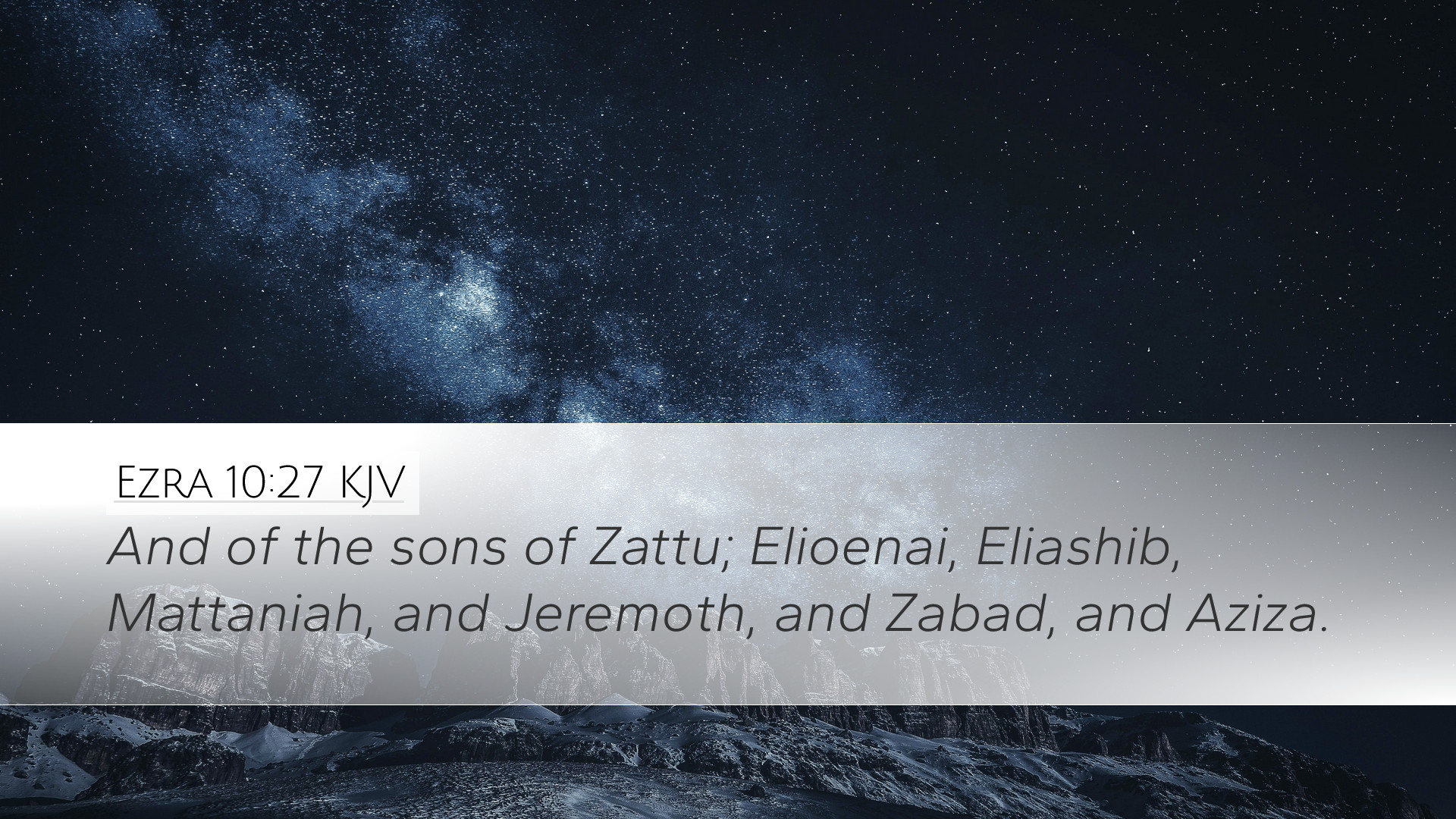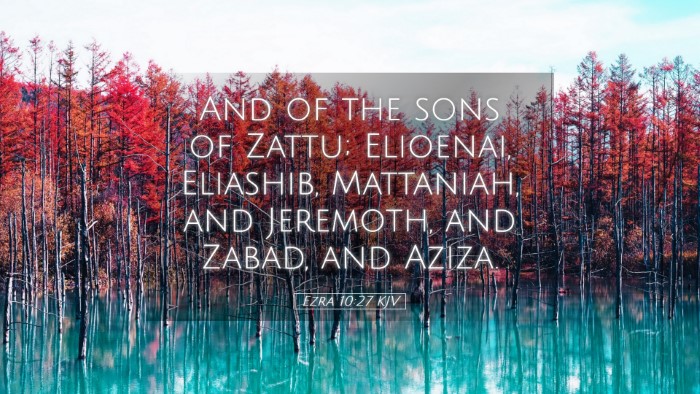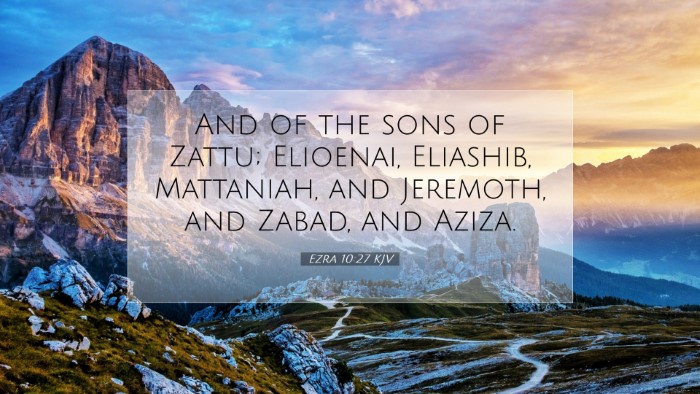Commentary on Ezra 10:27
Ezra 10:27 states, "And of the sons of Pahath-moab; Adna, and Chelal, and Benaiah, and Maaseiah, and Mattaniah, and Beeliah, and Shemaiah." This passage lists the descendants of Pahath-moab who had taken foreign wives and illustrates the broader theme of covenant fidelity in the post-exilic community.
Introduction
This verse is part of a larger context in which Ezra leads the returned exiles in a covenant renewal. The importance of maintaining a holy lineage is depicted throughout this chapter, emphasizing the call to separation from foreign influences that could lead them away from their covenant with God.
Historical Context
The return of the Israelites from Babylonian captivity marked a pivotal moment in Jewish history. Ezra’s leadership focused on restoring religious practices and ensuring fidelity to the Law of Moses. The intermarriage with foreign peoples posed a significant threat to this restoration as it diluted Jewish identity and worship.
Thematic Analysis
The list of names in Ezra 10:27 serves to highlight the specific individuals who were involved in the transgression. The public identification of these individuals underscored the seriousness of their actions, suggesting that public accountability was a crucial aspect of communal purity.
1. The Significance of Names
Names in the Hebrew Bible often carry meanings that reflect character or destiny. In this instance, the names listed may not convey explicit meanings in this context, yet their inclusion in this grave situation suggests a call to repentance and signifies the weight of their actions before God.
2. The Collective Responsibility
By naming these individuals, Ezra points to the collective responsibility the returned exiles had toward upholding covenant fidelity. The community is depicted not just as a collection of individuals, but as a united body that bears the consequences of corporate sin.
3. Repentance and Restoration
The act of repentance is highlighted throughout Ezra 10. The naming of those who had sinned represents a chance for recognition of wrongdoing and a step toward restoration. It is through confronting sin that the community could return to its covenant relationship with God.
Commentary Insights
Matthew Henry's Perspective
Henry emphasizes the tragedy of the exiles’ intermarriage with foreign women, noting that it represented a departure from God's commands and led to spiritual compromise. He illustrates the need for the people to be serious about the holiness of their covenant, arguing that the integrity of one's lineage is critical in worship and service to God.
Albert Barnes' Commentary
Barnes elaborates on the social implications of Ezra's reforms. He notes that the divorce from foreign wives wasn't merely a cultural shift but a spiritual necessity. Barnes suggests that this drastic measure was essential for the community's survival and faithfulness to God’s covenant, thereby upholding religious purity.
Adam Clarke's Insights
Clarke gives a nuanced view of the situation, recognizing the complexities involved in the intermarriages. He argues for an understanding that acknowledges the potential love and emotional ties that may have existed. However, he underlines that the overarching priority must always remain loyalty to God, which sometimes necessitates difficult decisions.
Conclusion
Ezra 10:27 serves as a powerful reminder of the importance of holiness, accountability, and corporate repentance in the life of the faith community. The names of those who married foreign wives stand not only as a historical record but also as a call for contemporary believers to examine their own lives for influences that might compromise their devotion to God. The weight of communal responsibility and the necessity for leadership in guiding the people toward faithfulness is a timeless lesson from this text.


